The Andhra Pradesh Public Service Commission (APPSC) has released the updated syllabus and exam pattern for the Forest Beat Officer (FBO) recruitment exam 2026. Candidates aiming for this prestigious post must go through the detailed syllabus to understand the subjects, weightage, and paper structure. In this article, we have provided the complete APPSC Forest Beat Officer syllabus and exam pattern along with a direct link to download the PDF for easy reference and preparation.
APPSC Forest Beat Officer Syllabus
The APPSC has announced the Forest Beat Officer Recruitment 2026 to fill 691 vacancies across the state. This is a valuable opportunity for aspiring candidates, and thorough preparation based on the latest FBO syllabus is essential for success. Understanding the syllabus helps candidates plan a more effective and focused study routine. The recruitment process consists of two stages: Preliminary and Main examinations. In this article, we have provided the complete Andhra Pradesh Forest Beat Officer Syllabus and Exam Pattern for both stages to assist candidates in their preparation journey.
APPSC FBO Mains Answer Key 2026 Out
APPSC FBO and ABO Syllabus
Candidates preparing for the Andhra Pradesh FBO and ABO Exam should be aware of the syllabus and exam pattern.
| APPSC FBO Syllabus | |
| Recruiting Organisation | Andhra Pradesh Public Service Commission |
| Post Name | Forest Beat Officer, Assistant Beat Officer |
| Vacancies | 691 |
| Selection Process | Prelims, Mains |
| Mode of the Exam | Prelims- Objective Mains- Objective and Descriptive |
| Duration of the Exam | 150 min/ Prelims |
APPSC Forest Beat Officer Syllabus 2026: Screening Test
The APPSC Forest Beat Officer Selection Process 2026 is conducted in two key stages – Preliminary (Screening) Test and Mains Examination. To move forward in the recruitment process, candidates must first qualify the Prelims Exam, which is structured into two distinct parts: Part A and Part B.
Only those who meet the minimum qualifying marks in the screening test will be shortlisted for the Mains Exam. To help you prepare effectively, we’ve provided the detailed AP Forest Beat Officer Prelims Syllabus 2026 in this article. Don’t miss the chance to boost your preparation with topic-wise information and expert tips.
Screening Test Syllabus:
The topics include
- General Science – Contemporary developments in Science and Technology and their implications, including matters of everyday observation and experience, as may be expected of an individual who has passed Intermediate and not made a special study of any scientific discipline.
- Current events – National and Andhra Pradesh-specific
- Indian History – Social, economic, cultural, and political aspects with a focus on AP and National Movement
- Indian Geography – Focus on Andhra Pradesh
- Indian Polity & Economy – including the country’s political system- rural development Planning and economic reforms in India.
- Mental Ability – Reasoning & inferences
- Sustainable Development & Environmental Protection
- Disaster Management – Types, causes, effects, mitigation, and strategies
Part B – General Science (SSC Standard) (75 Marks)
- Sources of Energy: Renewable and Non-renewable sources of energy.
a) Renewable sources: Solar energy (Solar Cooker, Solar water heater, Solar Cell); Wind energy, Hydro energy (Tides of Ocean, Hydroelectric), Geothermal wood, Biogas, Hydrogen and Alcohol.
b) Non-renewable sources: – Fossil fuel (Coal, Petroleum and Natural gas), conditions for combustion choice of a good fuel, fuel efficiency, nuclear fusion and nuclear fission, chain reaction, nuclear reactor (basic principles; safety measures), advantages and hazards of nuclear energy, mangal Turbine (Fuel less turbine)- Principle, working and uses.
2. Living World
- Life Processes such as nutrition, modes of nutrition – Autotrophic, heterotrophic,
- Parasitic and saprophytes.
- Nutrition of plants – Photosynthesis & factors affecting the photosynthesis
- Nutrition in animals like Amoeba & grasshopper.
- Human digestive system.
- Respiration in Plants and Animals.
- Type of respiration- Aerobic and anaerobic respiration.
- Respiration through Skin, Gills, trachea lungs. (Earthworm, Fishes, Grasshopper and Human)
- Knowledge of structure and function of human respiratory system.Life processes (nutrition, respiration)
- Plant & animal systems (photosynthesis, digestion, respiration types)
3. Transportation & Excretion
- Transportation in Plants and animals. (Water, minerals, food).
- Transportation in Human – Composition and function of blood, clotting of blood, blood Groups, transfusion of blood, heart, structure and functions of blood vessel (elementary knowledge) and lymphatic system.
- Excretion in animals (Amoeba and earth worm), excretion in human, Osmoregulation.
- Nervous system and hormones in Human- reflex action.
4. Reproduction, Heredity & Evolution
A) Reproduction and growth:
- Types of Reproduction:
- Asexual: Fission budding, regeneration, vegetative propagation in plants, cutting, grafting and layering, Parthenogenesis.
- Sexual reproduction and its significance- reproductive parts of plants, pollination and fertilization.
- Human reproductive system, mental and physical change during human development.
B) Heredity and Evolution:
- Heredity and Variations,
- Physical basis of Heredity-chromosomes; D.N.A. (elementary knowledge), Genes, Sex determination.
- Elementary knowledge of evolution.
- Asexual/sexual reproduction, heredity, DNA, genes, evolution basics
5. Natural Resources
a)Metals: Ores and minerals, metallurgy, Enrichment of ores, extraction of metal from ores, refinement and purification of metal with reference to Iron and aluminium, Activity series of metals, general properties and corrosion of metals, Alloys, Components, properties and uses of steel; stainless steel, Brass, magnalium, alloys of gold.
b) Non-metals: Importance and general properties, method of preparation of hydrogen, properties and its uses, manufacturing of ammonia (Only reactions), properties and uses, sulphur – occurrence, extraction, properties (allotropy and effect of heat) and uses. Properties and uses of Sulphur dioxide, manufacture of sulphuric acid (Only reactions), its properties and uses.
6. Carbon Compounds: Functional groups (only oxygen containing) Alcohols -preparation, properties and uses, preparation methods, properties and uses of formaldehyde, Acetone and Acetic acid. Some common synthetic polymers, soaps and detergents.
7. Environment and Environmental Problems:
a) Causes, prevention and control of environmental problems, Land, water, Air, noise pollution and accumulation of waste materials.
b) Biodegradable and Non-biodegradable materials,
c) Interaction between biotic and non-biotic components of ecosystem.
d) Ecological balance, efforts and measures for conservation of environment.
e) Process of water management and conservation:
- Rain water harvesting
- Ground water recharging
- Conservation of forests
- Land management and conservation
- Public awareness for environmental protection
- Green House effect
- Global warming
- Ozone layer depletion
- Acid rain.
8. Ethnobotany
a) Morphological study of medicinal plants, their classification on the basis of their use and life span.
b) Study of botanical names and medicinal use of the following seasonal and perennial plants.
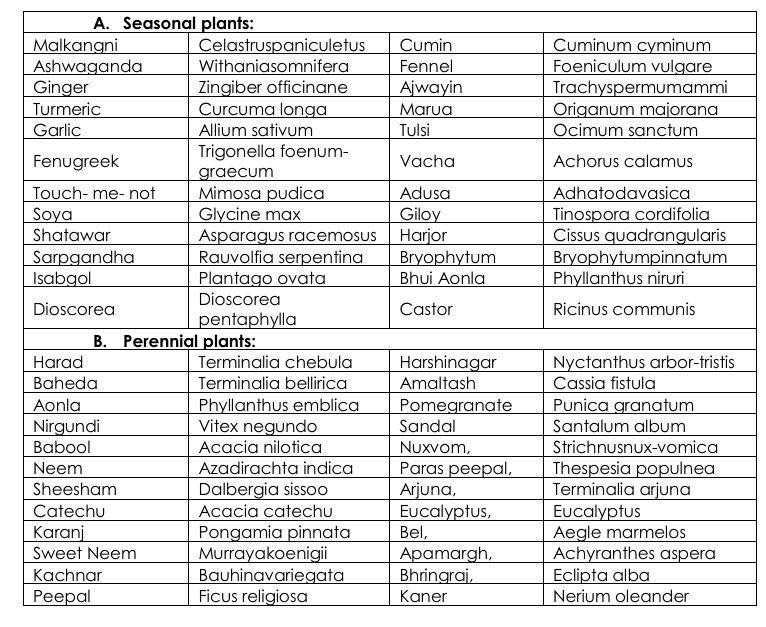
General Mathematics (SSC Standard)
The topics include in General Mathematics are:
1. Arithmetic
- Number System-Natural numbers, Integers.
- Rational and Real numbers.
- Fundamental operations, addition, subtraction, multiplication, division, square roots, Decimal fractions.
- Unitary method-time and distance, time and work, percentages, applications to simple and compound interest, profit and loss, ratio and proportion, variation.
- Elementary Number Theory – Division algorithm, Prime and composite numbers. Tests of divisibility by 2,3,4,5,9 and 11.
- Multiples and factors, factorisation Theorem. H.C.F. and L.C.M. Euclidean algorithm. Logarithms to base 10, laws of logarithms, use of logarithmic tables.
2. Geometry
Lines and angles, Plane and plane figures.
Theorems on
a) Properties of angles at a point.
b) Parallel lines.
c) Sides and angles of a triangle.
d) Congruency of triangles.
e) Similar triangles.
f) Concurrence of medians and altitudes.
g) Properties of angles, sides and diagonals of a parallelogram, rectangle and square.
h) Circles and its properties including tangents and normals.
i) Loci.
3. Statistics
- Collection and tabulation of statistical data,
- Graphical representation – frequency polygons, histograms, bar charts, pie charts etc.
- Measures of central tendency.
APPSC FBO ABO Exam Pattern 2026
The selection process includes the prelims and mains examination. All the candidates who applied should prepare according to the latest APPSC Forest Beat Officer Syllabus and Exam Pattern mentioned in the official website.
APPSC FBO ABO Prelims Exam Pattern
The preliminary examination is an objective type. The exam pattern consists of two parts i.e Part A and B. Each question carries 1 mark, and there is negative marking for each incorrect answer i.e -1/3rd. The duration of the exam is 150 minutes
| Parts | Subjects | Questions | Marks | Duration |
| Part A | General Studies & Mental Ability | 75 | 75 | 150 minutes |
| Part B | General Science& General Mathematics | 75 | 75 |
APPSC FBO ABO Mains Exam Pattern
The Mains exam will be conducted in descriptive and objective mode. English or Telugu Descriptive for 30 minutes and Paper-1, Paper-2 in Objective mode. Check the detailed APPSC Forest Beat Officer Mains Exam Pattern shared below:
| SI No. | Subject | Marks | Questions | Duration |
| 1 | Writing an essay in English or Telugu or Urdu (Descriptive type) | 50 Marks (Qualifying Test) | 1 Question | 30 Minutes |
| 2 | Paper-1 General Studies & Mental Ability (Objective type) | 100 Marks | 100 Questions | 100 Minutes |
| 3 | Paper-2 General Science & General Mathematics (SSC standard) (Objective type) | 100 Marks | 100 Questions | 100 Minutes |
| Total | 200 Marks |
APPSC Forest Beat Officer Syllabus PDF
Candidates preparing for the APPSC Forest Beat Officer Exam 2026 can now download the official syllabus PDF, which serves as a crucial tool for smart and effective preparation. The APPSC Forest Beat Officer Syllabus 2026 PDF outlines all the important topics, enabling aspirants to prioritize high-weightage subjects, manage their time efficiently, and reduce last-minute exam stress. This downloadable syllabus is designed to support focused study by clearly defining the subject-wise content for both Prelims and Mains exams. By following the official syllabus, candidates can ensure they don’t miss out on any key areas and stay aligned with the exam pattern set by the Andhra Pradesh Public Service Commission.
| Also check |
| APPSC Forest Beat Officer Exam Date 2025 |
| APPSC Forest Section Officer Syllabus |
| APPSC Forest Beat Officer Salary |
| APPSC Forest Beat Officer Previous Year Question Papers |

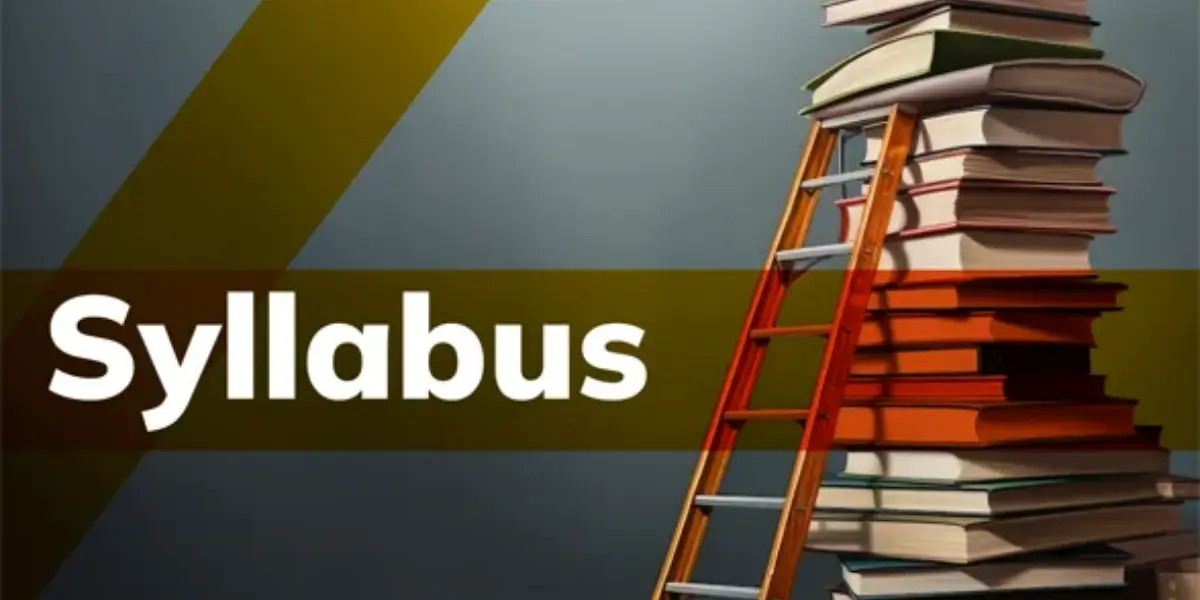

 APSC Forest Ranger Syllabus 2026, Downlo...
APSC Forest Ranger Syllabus 2026, Downlo...
 AP High Court Syllabus and Exam Pattern ...
AP High Court Syllabus and Exam Pattern ...
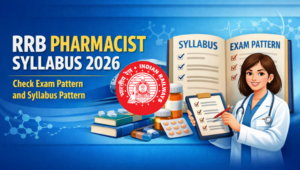 RRB Pharmacist Syllabus 2026, Check Exam...
RRB Pharmacist Syllabus 2026, Check Exam...
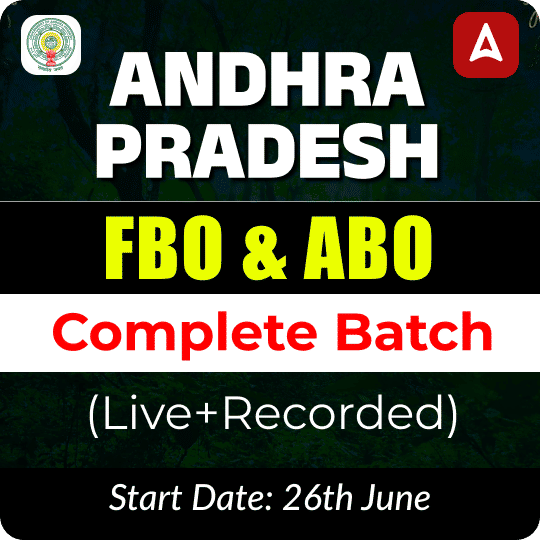
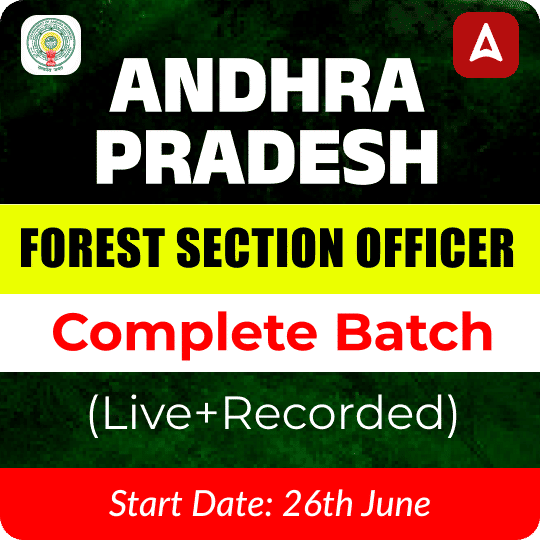
 Adda247 Job portal has complete information about all Sarkari Jobs and Naukri Alerts, its latest recruitment notifications, from all state and national level jobs and their updates.
Adda247 Job portal has complete information about all Sarkari Jobs and Naukri Alerts, its latest recruitment notifications, from all state and national level jobs and their updates.




